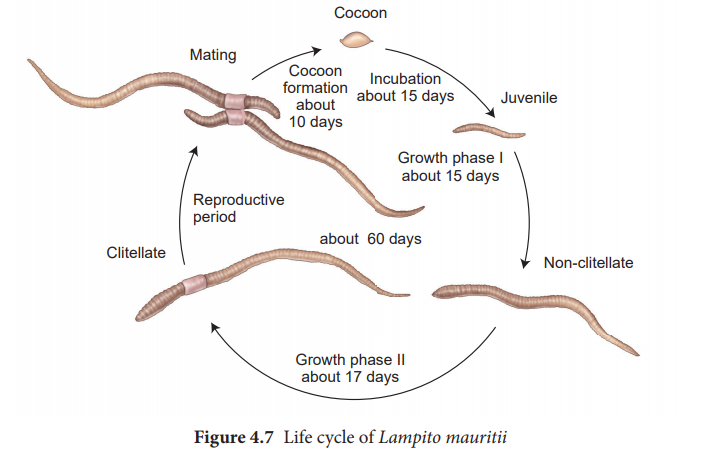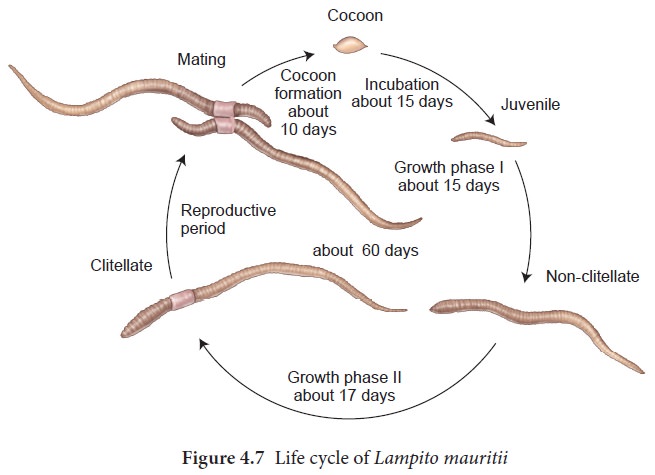Chapter: 11th Zoology : Chapter 4 : Organ and Organ Systems in Animals
Life cycle of Earthworm (Lampito mauritii)

Life cycle
Lampito mauritii begins its life cycle, from the
fertilized eggs. The eggs are held in a protective
cocoon. These cocoons have an incubation period of about 14- 18 days after
which they hatch to release juveniles
(Figure 4.7). The juveniles undergo changes into non-clitellate forms in phase
– I after about 15 days, which
then develops a clitellum, called
the clitellate at the end of the
growth phase – II taking 15 - 17 days to complete. During the reproductive
stage, earthworms copulate, and later shed their cocoons in the soil after
about 10 days. The life cycle of Lampito
mauritii takes about 60 days to complete.
Earthworms
are known as “friends of farmer” because they make burrows in the soil and make
it porous which helps in respiration and penetration of developing plant roots.
Vermiculture, vermicomposting, vermiwash and wormery are inter-linked and
interdependent processes, collectively referred as Vermitech. Lampito mauritti
helps in recycling of dead and decayed plant material by feeding on them.
Artificial rearing or cultivation of earthworms involves new technology for the
betterment of human beings. This process is known as Vermiculture. The process of producing compost using earthworms is
called Vermicomposting. Vermiwash is
a liquid manure or plant tonic obtained from earthworm. It is used as a foliar
spray and helps to induce plant growth. It is a collection of excretory
products and mucus secretion of earthworms along with micronutrients from the
soil organic molecules. Earthworms can be used for recycling of waste food,
leaf, litter and biomass to prepare a good fertilizer in container known as wormery or wormbin. It makes superior compost than conventional composting
methods. Earthworms are also used as bait in fishing.

Related Topics